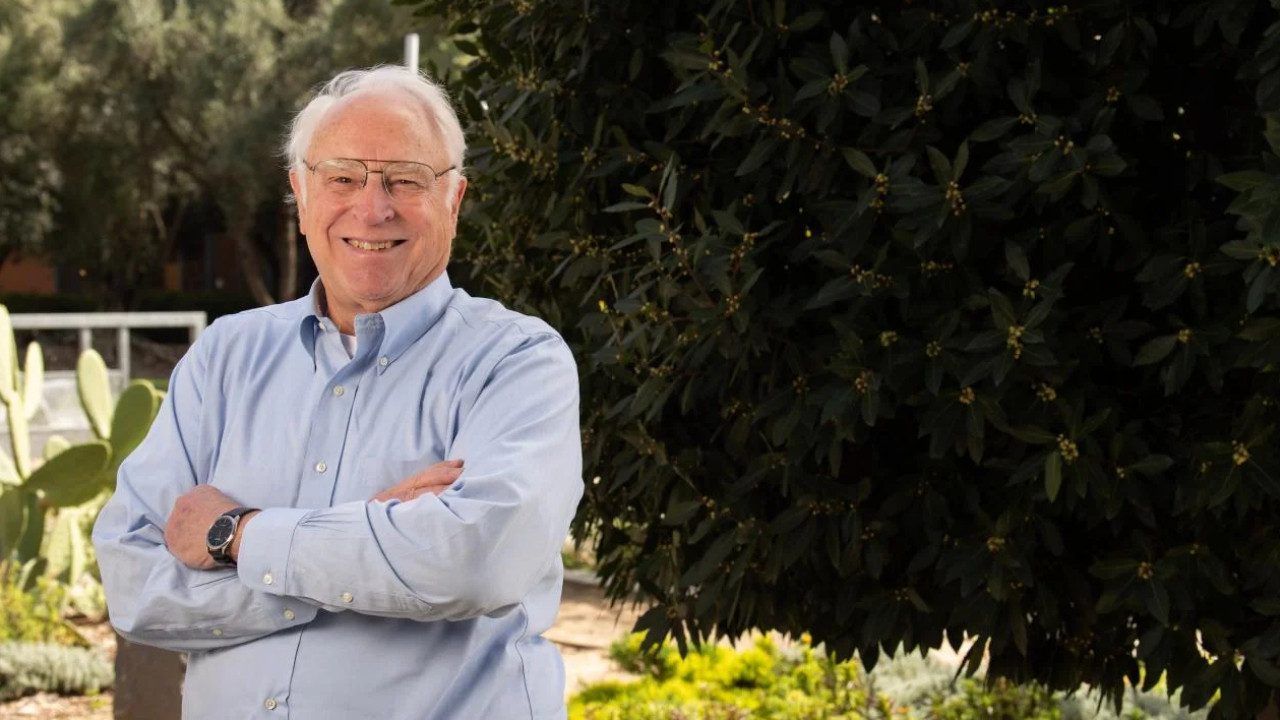
Catalyzing Possibilities
Professor Bruce Gates on Studying the Fundamentals
After more than 60 years studying chemical reactions and catalysts, Bruce Gates says UC Davis is a lot like a reaction that keeps itself going.
“People who see the benefit of an institution where people really are committed to each other — they work to keep it that way,” he said.
Gates, a professor of chemical engineering, has been with UC Davis since 1992. His research has made bounds in the area of hydroprocessing, a tactic used to extract contaminants from fuel, commonly at oil refineries. Gates and his research group have made significant findings regarding the fundamental understanding of catalysts, materials that facilitate chemical reactions. Gates was first elected to the National Academy of Engineering in 2007 before also being elected into the National Academy of Inventors in 2022.
Cleaning up
Gates is a pioneer in the area of structurally well-defined catalysts, which are increasingly finding real-world technological application. He helped to identify “bottleneck” sulfur-containing compounds in petroleum through his work on fossil fuel conversion.
The discovery, along with government regulations like the Clean Air Act, helped to limit the emissions of sulfur oxides from fuel combustion, drastically lowering the possibility of “acid rain” and greatly increasing the quality of air.
“The regulations have had an enormous impact and they've improved the quality of our environment,” Gates said. “The whole subject of what drives the technology has been evolving fast over the whole course of my career.”
His research on chemical reactions and catalysts began in the 1960s, when an undergraduate course at UC Berkeley sparked his interest. He earned a Ph.D. at the University of Washington in 1966 before spending the first half of his career at the University of Delaware.
Zooming in, zooming out
After joining Davis in the early 1990s, Gates helped expand the reach of the campus’ engineering programming. In 2007, he worked with then-department chair Robert Powell to launch a new freshman course in chemical engineering analysis.
“We're driven by opportunities for fundamental understanding at the same time as we're driven by the prospect of applications for new things, for new kinds of performance,” Gates said, noting that as academic engineers, “we can have it both ways.
“We can be doing something that's academic, that's fundamental, that gives students excellent opportunities to learn,” Gates explained, “but can be influential in a technological sense.”
And it’s that dual purpose of research and technological innovation with real-life applicability that Gates has developed over the course of his 30-plus years on campus.
“The University of California is very strong and I appreciate the distinction,” Gates said. “There's something about the culture, the history, the people at UC Davis that is harmonious. And I think that there are a lot of people on our campus who have a sense for the uniqueness of that.”
“It's a very special place,” Gates emphasized, “and it's a privilege to be a part of it.”
